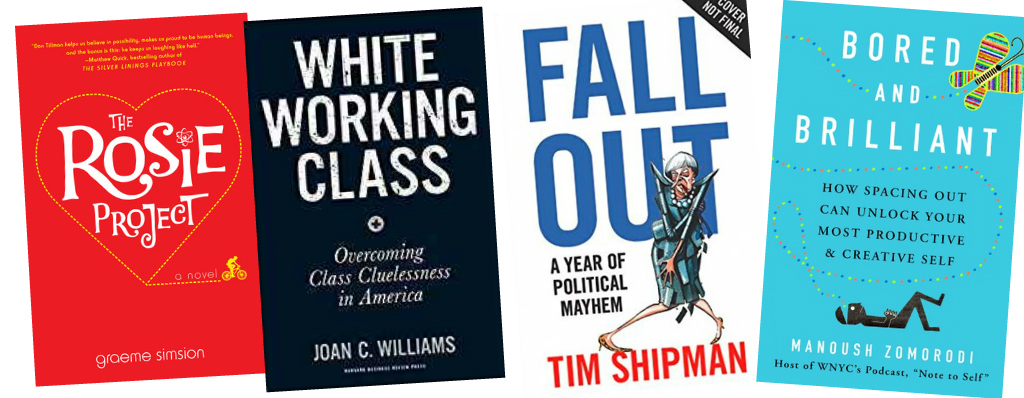What I’ve been reading this month

The Eight Mountains by Paolo Cognetti, translated by Simon Carnell and Erica Segre, was a brilliant Italian novel. The plot concerned Pietro and Bruno, two childhood friends who grew up in a farming community in the mountains of Italy, and followed the development of their relationship over decades. The book reflected on the different things we all get out of relationships: how our relationships with nature, society, friends and family are all so different and hold such different meanings and degrees of importance to each of us. I really enjoyed this.
A little while ago, a friend told me to read Stefan Zweig and to start with his biography of Montaigne. This seemed like such a weirdly esoteric recommendation that it sat on my “to read” list for ages, but I finally got round to reading it this month. It was wonderful! It was a beautifully written and very short biography of a man who lived an astounding life at a pivotal moment in history. Zweig’s prose—almost every line of which felt quotable—seemed to capture the vital essence of someone who lived hundreds of years before him. Montaigne was an eccentric genius, and this was not haigrophy: Zweig was uncompromising about Montaigne’s flaws. But still, this book left me awed.
Another book recommended to me was Conspiracy by Ryan Holiday. I’ve put this off several times because I thought I had no interest in it: I knew it to be a book about the legal actions concerning Hulk Hogan, Peter Thiel and Gawker Media, none of whom I have any real interest in. Yet, this turned out to be a book where none of that really matters. This is a book in which Holiday makes an argument—with some success—that there aren’t enough conspiracies in the world today. He suggested that too many people are willing to complain rather than plot, and that if more people secretly conspired to change the world, then the world would be a better place. Holiday illustrated his argument through a telling of the story of Peter Thiel’s conspiracy to destroy Gawker, a gossip website. Holiday frequently drew comparisons with epic historical or mythological conspiracies, in a way which felt at first absurd and hyperbolic, but which I quickly came to find endearing and somewhat convincing. If nothing else, Holiday’s enthusiasm for his thesis shone through and I ended up really enjoying this. While I wasn’t completely convinced by the central argument, it gave me quite a lot to think about.
Can it be morally right for a journalist profiling an interviewee to lie to them? That’s the question at the heart of Janet Malcolm’s famous book, The Journalist and the Murderer. Malcolm’s inspiration was a specific book about a convicted murderer which was clearly once at the centre of public attention, but I don’t think the fact that I was unfamiliar with the specifics hindered my enjoyment. I enjoyed this because it made me consider questions that are so far removed from anything I usually have cause to think about. It is a reminder of those who strive for lofty ambitions in journalism, and of what society has lost by letting volume, clicks and page views count.
I’m pretty sure I read all of Agatha Chrisie’s Poirot novels and short stories as a teenager, and I certainly read Murder on the Orient Express. I re-read it this month, and was reminded of the gentle pace and broad-brush sterotyping that make the Poirot stories so comfortable and easy to read. The careful plot and pacing, including the neat resolution common to all Poirot, make the whole think feel like a comfortable pair of slippers. No real thought was required, there was nothing especially challenging, and I didn’t gain any new insights into anything from reading this. It was just perfectly relaxing, which is exactly what I was after.
Lullaby by Leïla Slimani, translated by Sam Taylor, is very much the French novel of the moment. At it’s heart, it was a book which explored the reasons why a seemingly perfect nanny would murder her charges despite clearly loving them. I don’t think it’s a spoiler to say that there is no simple answer, just an accumulation of experiences across a lifetime which lead to the terrible moment described in the opening of the book. I liked the complexity and gritty realism of this book, but somehow didn’t find it particularly engaging. I didn’t come to feel any particular connection with the characters, and while others have described it as “haunting”, I hasn’t really caused me much of a second thought since.
I didn’t realise before I bought it that Eddie Mair’s A Good Face for Radio was a collection of his Radio Times columns: had I known in advance, I wouldn’t have picked it up. I enjoy Mair’s wit, and have occasionally read columns by him, but I never really find that I get much out of reading collections of short articles. They tend to be a little repetitive and, by dint of the format, the ideas and arguments in them aren’t really fully explored.
This post was filed under: What I've Been Reading.







